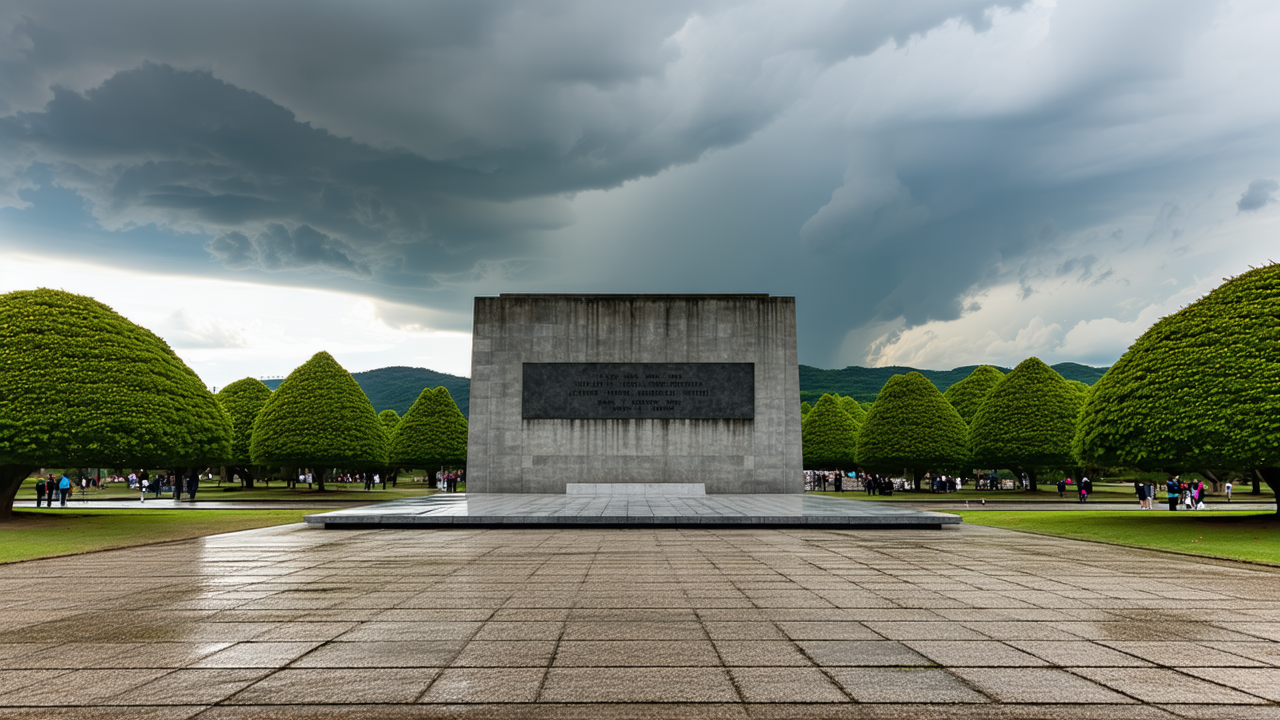Hiroshima Warns Against Nuclear Weapons as It Marks 80 Years Since A-Bomb
Hiroshima Warns Against Nuclear Weapons as It Marks 80 Years Since A-Bomb
On the 80th anniversary of the first atomic bomb attack in history, Hiroshima stood as a solemn reminder of the devastation wrought by nuclear weapons. Thousands gathered at the Peace Memorial Park, where a moment of silence was held at 8:15 a.m., the exact time the bomb was dropped on the city in 1945. As the world reflects on this harrowing milestone, Hiroshima’s mayor issued a powerful warning to global leaders about the persistent threat of nuclear weapons and the current global trend toward military buildup.
The city of Hiroshima was reduced to rubble on August 6, 1945, when the United States dropped the uranium bomb “Little Boy,” instantly killing an estimated 78,000 people. The devastation was compounded by the intense heat—reaching 4,000 degrees Celsius—and radiation, which claimed many more lives in the months that followed. Three days later, a plutonium bomb was dropped on Nagasaki, leading to Japan’s surrender on August 15, 1945.
This year, representatives from a record 120 countries and territories attended the annual ceremony, including the United States and Israel, which neither confirms nor denies its nuclear capabilities. Mayor Kazumi Matsui called on world leaders to learn from the tragedies of Hiroshima and Nagasaki, emphasizing the dangers of the current global arms race.
“Among the world's political leaders, there is a growing belief that possessing nuclear weapons is unavoidable in order to protect their own countries,” Matsui said, noting that the U.S. and Russia hold 90% of the world’s nuclear warheads. He warned that this trend undermines the peace-building frameworks established over decades and risks repeating the horrors of the past.
Yoshikazu Horie, a 71-year-old tourist, echoed the mayor’s concerns, stating that history seems to be repeating itself. “It feels more and more like history is repeating itself. Terrible things are happening in Europe ... Even in Japan, in Asia, it's going the same way, it's very scary,” he said. “I've got grandchildren and I want peace so they can live their lives happily.”
Survivors of the bombings, known as “hibakusha,” have long faced discrimination due to fears that they carried diseases or that their offspring might be affected. For the first time in decades, their numbers have fallen below 100,000. Despite Japan’s commitment to nuclear disarmament, it has not signed the UN treaty to ban nuclear weapons.
As the world stands at a crossroads, the voices of the hibakusha and the people of Hiroshima remain a powerful call to action. Their message is clear: the horrors of nuclear warfare must never be repeated again.
